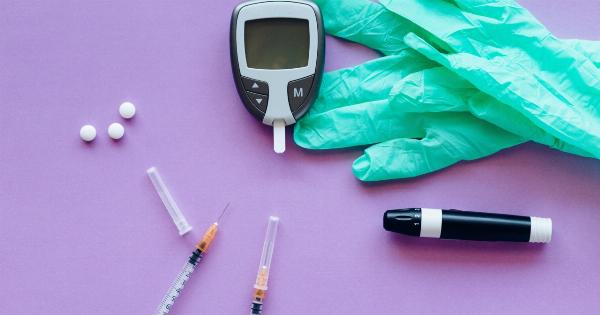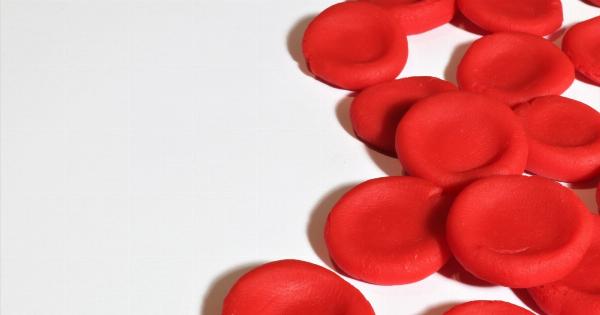The human body relies on blood to transport oxygen and other essential nutrients throughout the body. Without the proper supply of blood, the body cannot function properly. In some cases, patients may require blood transfusions to help them stay alive.
However, blood transfusions often come with their own set of risks, including the risk of infection and allergic reactions. That’s where customized artificial blood comes in.
Artificial blood has been in development for decades, but recent breakthroughs in technology have made it possible to create custom artificial blood that matches a patient’s requirements.
This means that patients can receive the precise amount of blood they need without the risk of adverse reactions.
What is Artificial Blood?
Artificial blood is a blood substitute that can replace the function of real blood. There are two main types of artificial blood:.
- Oxygen-carrying solutions: These solutions can carry oxygen, but cannot stimulate the body’s natural clotting response.
- Hemoglobin-based oxygen carriers: These solutions are made from hemoglobin, the protein that carries oxygen in the blood. Unlike oxygen-carrying solutions, hemoglobin-based oxygen carriers can stimulate the body’s natural clotting response.
Both types of artificial blood can be customized to match a patient’s requirements.
Why is Customized Artificial Blood Important?
Customized artificial blood is important because it can help minimize the risk of adverse reactions in patients. For example, some patients may be allergic to certain components of real blood, such as proteins or antigens.
By creating a custom artificial blood solution, doctors can ensure that the patient receives a blood substitute that is compatible with their body.
Customized artificial blood can also help minimize the risk of infection. Real blood must be carefully screened to prevent the transmission of diseases such as HIV and hepatitis.
Artificial blood, on the other hand, can be sterilized and is free of pathogens.
How is Customized Artificial Blood Made?
Creating customized artificial blood is a complex process. The first step is to take a sample of the patient’s blood and analyze it to determine the patient’s blood type and other genetic factors.
This information is then used to create a custom artificial blood solution that matches the patient’s requirements.
The exact process for creating artificial blood can vary depending on the type of artificial blood being produced.
However, most artificial blood solutions are created by synthesizing or modifying certain components of real blood, such as red blood cells or hemoglobin.
Challenges in Developing Artificial Blood
Developing artificial blood has been a long-standing goal of the medical community. However, there are many challenges that must be overcome before artificial blood can be widely used in clinical settings. Some of the major challenges include:.
- Creating an artificial blood solution that can effectively carry oxygen throughout the body.
- Ensuring that the artificial blood is safe and does not cause adverse immune reactions.
- Creating an artificial blood solution that can be mass-produced at a reasonable cost.
Researchers are continuing to work on these challenges and are making progress in developing new and improved artificial blood solutions.
Applications of Customized Artificial Blood
Customized artificial blood has a wide range of potential applications in medicine. Some of the most promising areas of application include:.
Blood Transfusions
Perhaps the most obvious application of customized artificial blood is in blood transfusions. Blood transfusions are commonly used to treat patients with anemia, leukemia, and other conditions that cause a shortage of healthy red blood cells.
Customized artificial blood can be used to provide a safe and effective alternative to real blood transfusions.
Emergency Blood Loss
In emergency situations, patients may lose large amounts of blood and require a blood transfusion to stay alive.
Customized artificial blood can be used to quickly provide patients with the blood they need, even in situations where real blood is not readily available.
Organ Transplants
During organ transplant surgeries, patients may require blood transfusions to help replace blood lost during the surgery.
Customized artificial blood can provide a safe and effective alternative to real blood transfusions, minimizing the risk of adverse immune reactions.
Treatment of Blood Disorders
Artificial blood may also have applications in the treatment of blood disorders such as sickle cell anemia.
By providing patients with a custom artificial blood solution that contains healthy hemoglobin, doctors may be able to help manage the symptoms of these conditions.
The Future of Customized Artificial Blood
Customized artificial blood has the potential to revolutionize the way we think about blood transfusions.
With advances in technology, we may soon be able to create artificial blood solutions that are even safer, more effective, and more affordable than real blood.
As research continues into the development of artificial blood, we may see new breakthroughs that enable us to create customized blood solutions for a wide range of medical applications.
Ultimately, the goal is to create a safe, effective, and reliable alternative to real blood transfusions that can help save lives.

























